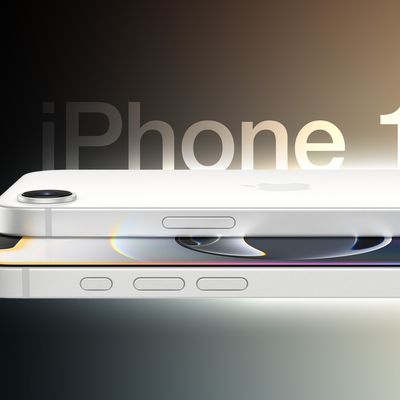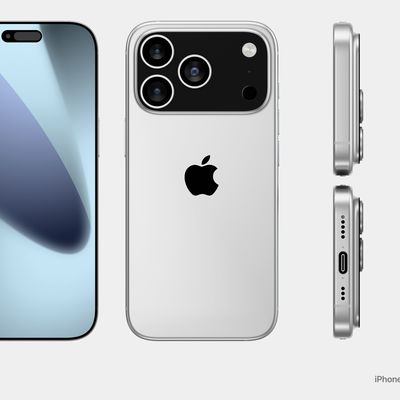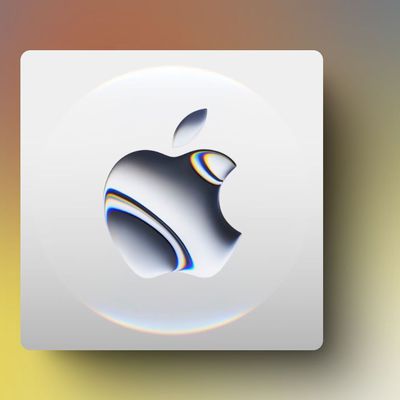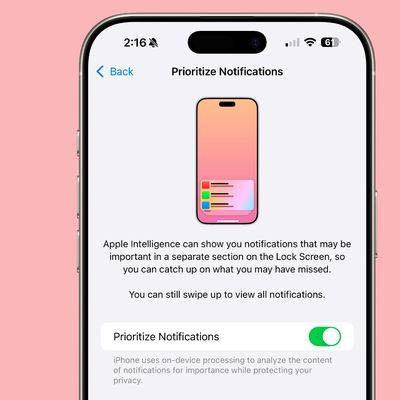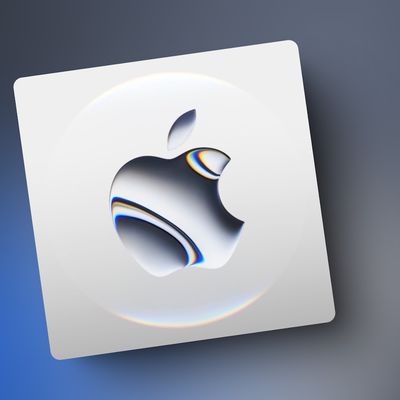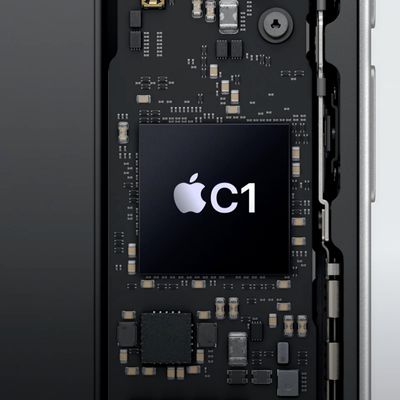iPod Lawsuit Against Apple Given Class-Action Status
Apple customers who purchased an iPod between September 12, 2006 and March 31, 2009 are being informed via email that they are being included in a class-action lawsuit filed against Apple in 2004. The lawsuit was granted class-action status by the courts last year and includes millions of customers who purchased any of a broad number of iPod music players. Notices are being distributed to customers covered by the class, directing them to the lawsuit's webpage.

The class-action suit was filed in January 2005 by a customer complaining about the exclusive nature of Apple's digital music offerings encoded with FairPlay, preventing users from playing music purchased from the iTunes Store on other companies' music players and other music stores' digital offerings from being played on iPods. In particular, Apple's efforts to thwart RealNetworks' reverse engineering of FairPlay with its own "Harmony" technology served as the impetus for the lawsuit.
In 2011, then Apple CEO Steve Jobs was instructed to provide a deposition in the case. Apple of course no longer sells DRM-encoded music through the iTunes Store, but the lawsuit argues that Apple sought to build monopolies in the digital music and portable music player markets by integrating its products and services while preventing interoperability with competitors' products.
Three individuals who bought iPods have sued Apple seeking to recover money for themselves and other people who bought iPods. The lawsuit claims that Apple violated federal and state laws by issuing software updates in 2006 for its iPod that prevented iPods from playing songs not purchased on iTunes. The lawsuit claims that the software updates caused iPod prices to be higher than they otherwise would have been.
The Court in charge of the case is the United States District Court for the Northern District of California, and the case is known as In re Apple iPod iTunes Antitrust Litigation, C-05-00037-JW.
The list of affected iPods is extensive, including all 5th generation iPods; the iPod Classic; the U2 Special Edition iPod; first, second and third generation iPod Shuffle models; first and second generation iPod Touch models; and, first, second, third and fourth generation iPod Nano models.
Customers who wish to be excluded from the class must inform the court by July 30, 2012. Members of the class who wish register with the court can sign up on the lawsuit's website.
Popular Stories
Apple today introduced the iPhone 16e, its newest entry-level smartphone. The device succeeds the third-generation iPhone SE, which has now been discontinued.
The iPhone 16e features a larger 6.1-inch OLED display, up from a 4.7-inch LCD on the iPhone SE. The display has a notch for Face ID, and this means that Apple no longer sells any iPhones with a Touch ID fingerprint button, marking the ...
Over the years, Apple has switched from an aluminum frame to a stainless steel frame to a titanium frame for its highest-end iPhones. And now, it has been rumored that Apple will go back to using aluminum for three out of four iPhone 17 models.
In an investor note with research firm GF Securities, obtained by MacRumors this week, Apple supply chain analyst Jeff Pu said the iPhone 17, iPhone...
Now that Apple has announced its new more affordable iPhone 16e, our thoughts turn to what else we are expecting from the company this spring.
There are three product categories that we are definitely expecting to get upgraded before spring has ended. Keep reading to learn what they are. If we're lucky, Apple might make a surprise announcement about a completely new product category.
M4...
Wednesday February 19, 2025 11:38 am PST by
Juli CloverFollowing the launch of the iPhone 16e, Apple updated its iOS 18, iPadOS 18, and macOS Sequoia pages to give a narrower timeline on when the next updates are set to launch.
All three pages now state that new Apple Intelligence features and languages will launch in early April, an update from the more broader April timeframe that Apple provided before. The next major point updates will be iOS ...
Apple finally released the first beta of iOS 18.4 to developers for testing purposes, and while the beta is lacking some of the Apple Intelligence features we were hoping for, there are some notable new additions.
Subscribe to the MacRumors YouTube channel for more videos.
Priority Notifications - Apple Intelligence
There is a new Priority Notifications feature that can show you your most...
In a social media post today, Apple CEO Tim Cook teased an upcoming "launch" of some kind scheduled for Wednesday, February 19.
"Get ready to meet the newest member of the family," he said, with an #AppleLaunch hashtag.
The post includes a short video with an animated Apple logo inside a circle.
Cook did not provide an exact time for the launch, or share any other specific details, so...
Apple has confirmed that its custom-designed C1 modem in the iPhone 16e has nothing to do with the device's lack of MagSafe support, according to Macworld.
Following the launch of the iPhone 16e, there was some speculation online about how MagSafe magnets might have interfered with the C1 modem's cellular connectivity performance, and this was considered to be a potential reason for the...
Apple today announced its first custom cellular modem with the name "C1," debuting in the all-new iPhone 16e.
The new modem contributes to the iPhone 16e's power efficiency, giving it the longest battery life of any iPhone with a 6.1-inch display, such as the iPhone 15 and iPhone 16.
Expanding the benefits of Apple silicon, C1 is the first modem designed by Apple and the most...



